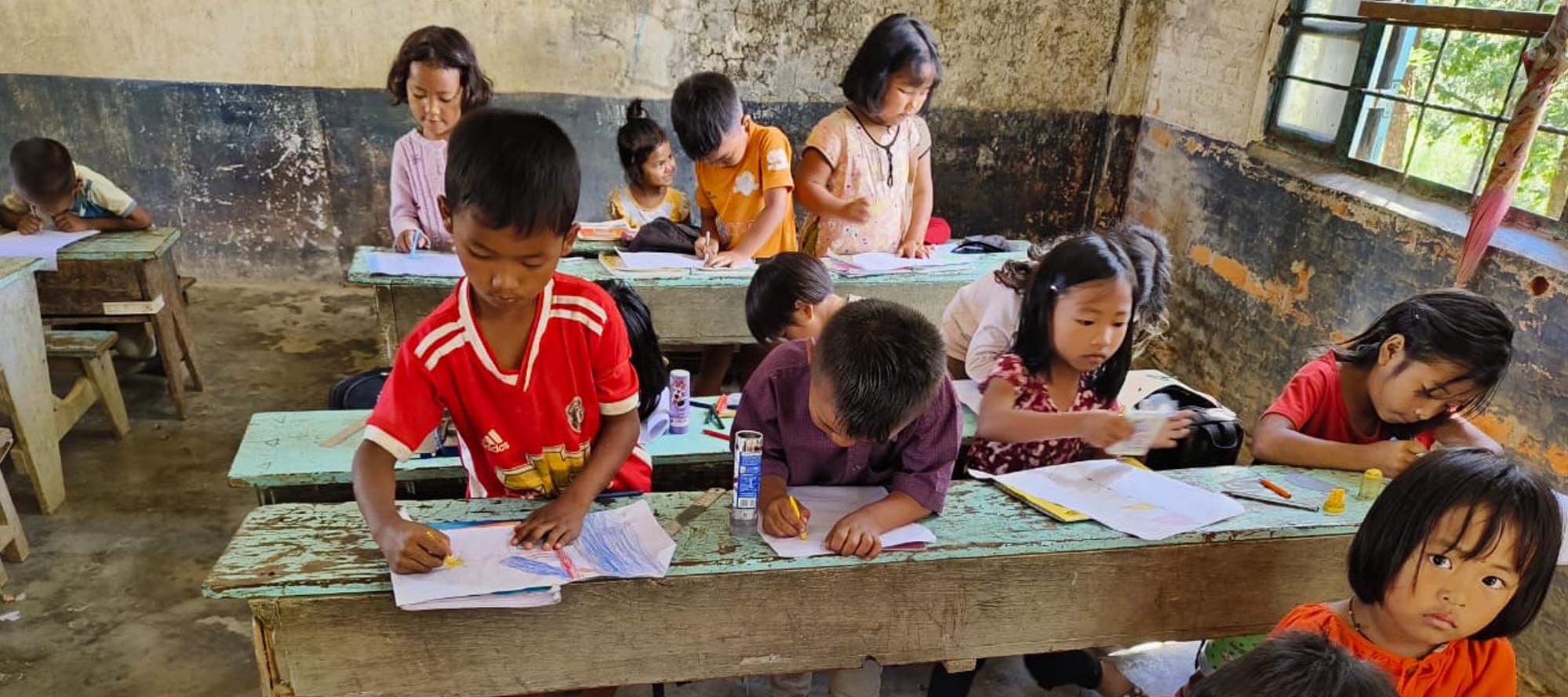CENTRE FOR DEVELOPMENT INITIATIVES (CDI)
Borjhar, Guwahati
ONGOING PROJECTS IMPLEMENTED BY CDI
EARLY (Enhanced Awareness and Rural Livelihood of Youth)
Theme: “Prevention of Human Trafficking and Promotion of Safe Migration through community mobilization and participation for livelihood opportunities in tea gardens of Assam”
The project is supported by Missio. It aims to empower youth, women, and children by enhancing their participation in livelihood opportunities, improving income generation, and increasing access to quality education. It seeks to foster social change, reduce human trafficking, and promote safe migration through strengthened community support systems. Trained Youth Volunteers from local groups like the Youth Forum, Village Vigilant, and Women Groups are leading development activities in their areas. The project also focuses on enhancing economic empowerment, promoting local leadership among youth for safe migration, and creating child-friendly villages with mentorship, coaching, and remedial education. Key stakeholders include School Teachers, Health and Child Development Officers, Tea Garden Officials, Labour Officers, and Social Welfare Officers.
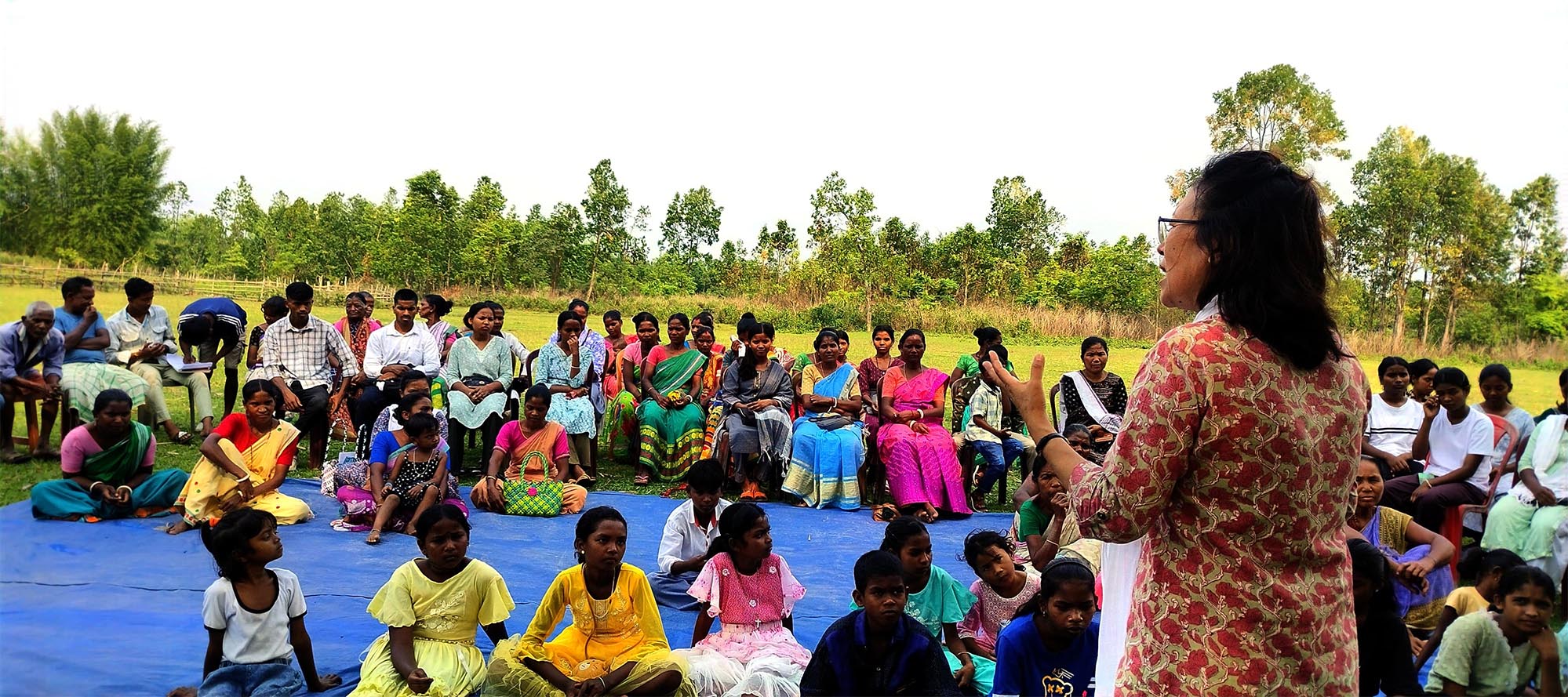
New Hope
Theme: “Improvement of the living and working conditions of domestic workers for a dignified life in 3 States of North East India”
The project is supported by AzimPremji Foundation. It focuses on identifying and registering Domestic Workers (DWs) in six cities i.eAizawl, Champhai, Churachandpur, Dimapur, Imphal, and Kohima, forming and strengthening them into groups and collectives to foster unity, solidarity, and empowerment.It aims to create awareness and link eligible domestic workers with essential social security schemes and entitlements as it ensure financial support during times of need or crisis andmake them eligible for government benefits, insurance, and access affordable or free medical care, which are crucial given their low and irregular incomes, thereby promoting social inclusion, reducing exploitation, and enhancing their overall quality of life.
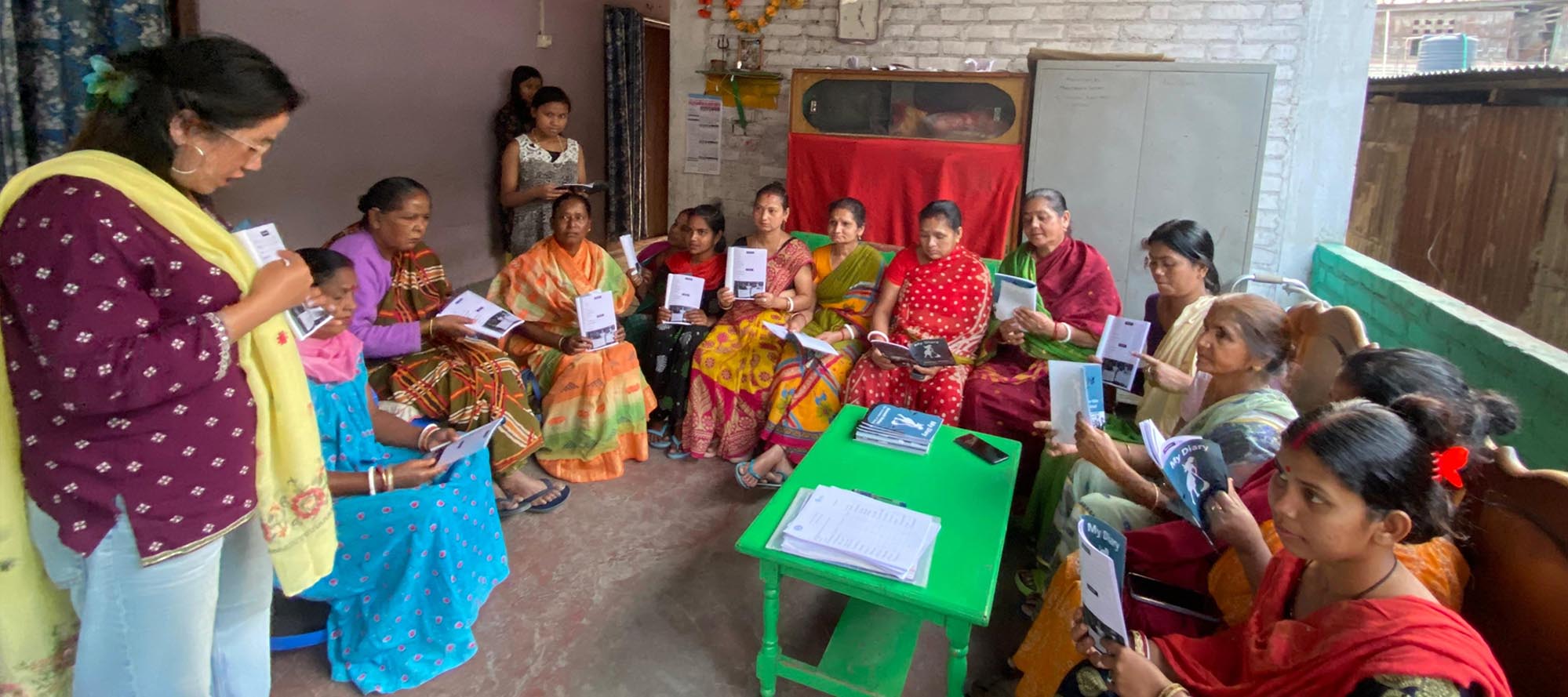
The initiative also promotes mutual understanding and respectful communication between employers and domestic workers, encourages adherence to labour laws including fair wages and safety standards. The project also focuses on building legal awareness among domestic workers to empower them with knowledge of their rights under Indian law. This enables them to seek justice and protection against exploitation, abuse, non-payment of wages, and unfair termination.Additionally, the project also enhances stakeholder engagement to advocate for the recognition of domestic workers’ rights and better working conditions, while also raising awareness on safe migration among current and potential domestic workers.
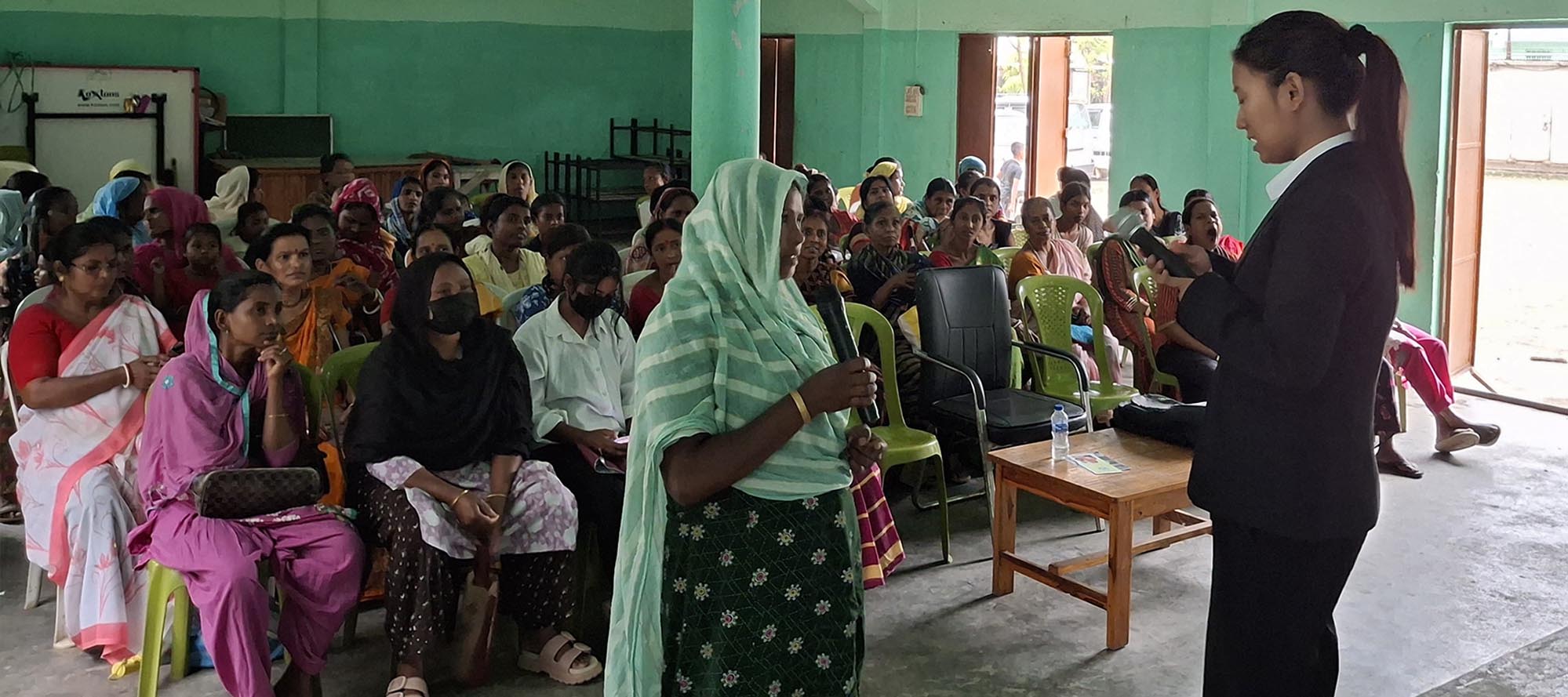
SHELTER (Supporting Health, Education and Lifelong healthy habits: Towards Empowerment and Resilience) – Tea Champions
Supported by Northwestern University, USA, the project aims to improve the lives of Tea Garden Workers’ children in Udalguri and Baksa districts by promoting access to quality education, raising awareness on good nutrition and healthy behaviors, and facilitate access to healthcare services. It focuses on building children’s capacity through targeted skill training to prepare them for future economic opportunities. The initiative also empowers communities through Village Development Committees (VDCs), which lead outreach, sensitization campaigns, and dialogues on community development. Additionally, the project provides education on micronutrients to women and girls, facilitate in linking beneficiaries to government nutrition schemes, offers nutritional support, conducts anthropometric and health assessments for children, and raises awareness on the importance of skill development for improving children’s livelihood prospects.
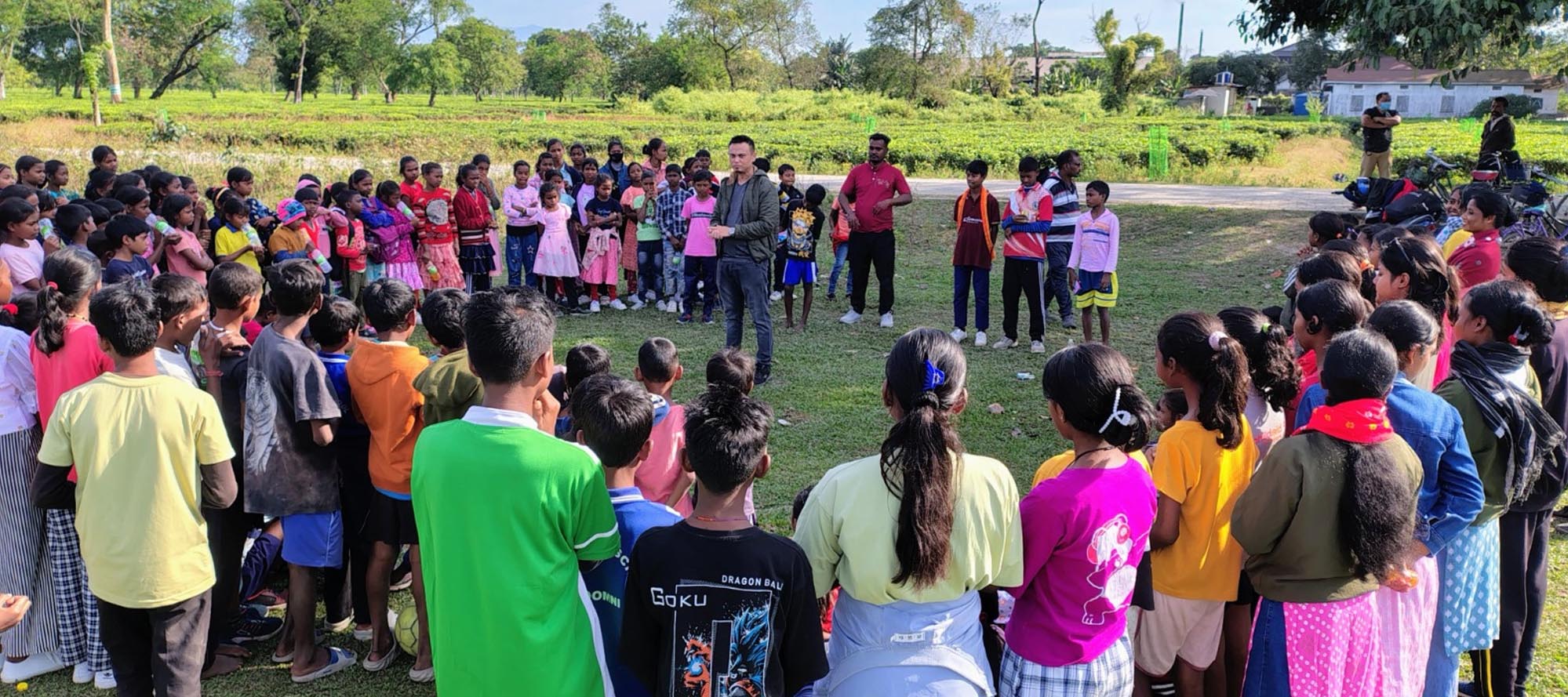
World Environment Day Report
WORLD ENVIRONMENT DAY REPORT (SHELTER PROJECT)
On 5th June 2025, the SHELTER Project observed World Environment Day across 20 centres-10 each in Baksa and Udalguri districts, based on the theme “Beat Plastic Pollution.” The day began with awareness sessions highlighting the significance of the occasion, its origin in 1972, and ongoing environmental challenges such as pollution, deforestation, and climate change. Students actively participated in discussions, plantation drives involving trees like Mehoconi, Koronj, Neem, and flowering plants, as well as vegetable seed distribution to encourage kitchen gardening. A drawing competition provided a platform for creative expression, while clean-up drives focused on collecting plastic waste from the surroundings. The programme aimed to instil environmental responsibility and promote active participation in creating a cleaner, greener future.
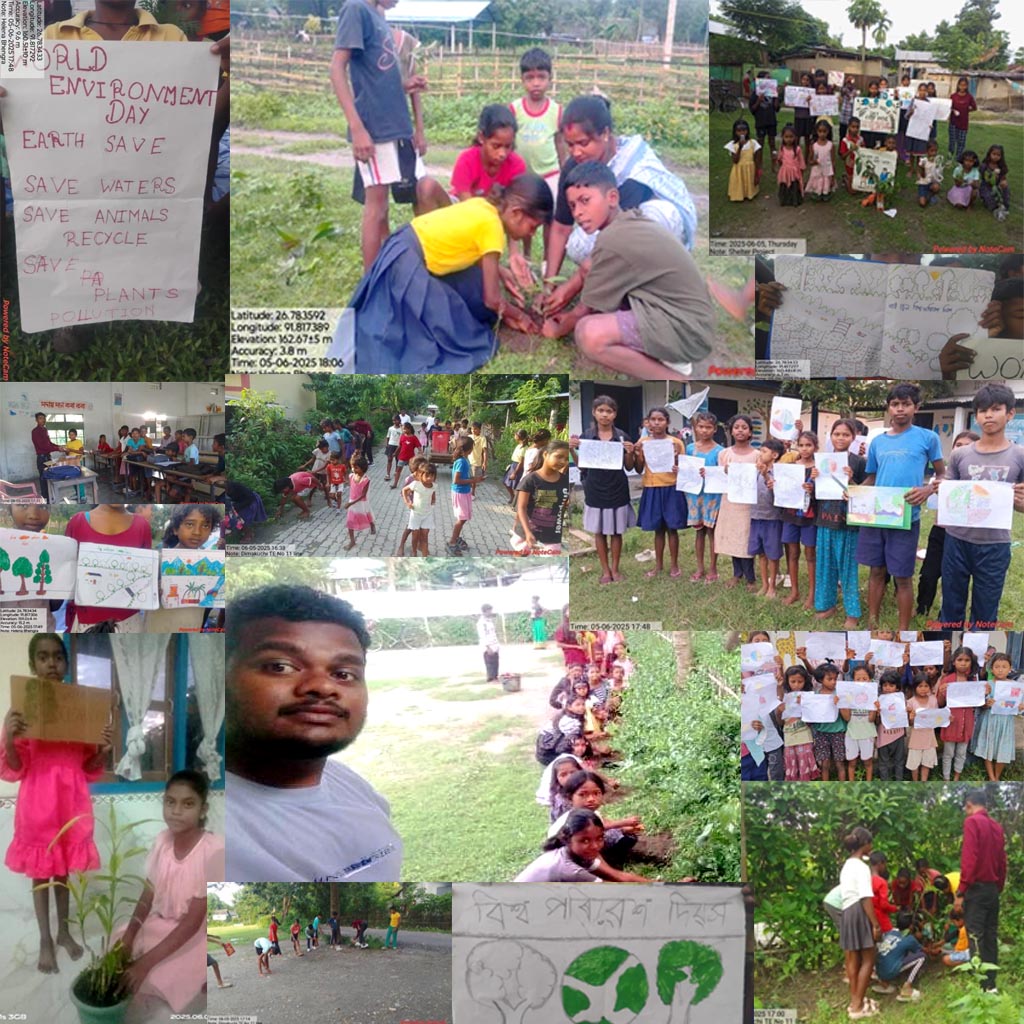
Transit Monitoring - Interception
The project is supported by Love Justice International (LJI). It is an anti-human trafficking intervention which operates at Guwahati Railway Station, focusing on the identification, interception, and assistance of actual or high-risk victims before they reach destinations where they may face exploitation. The initiative involves proactive monitoring, data collection on trafficking patterns, and close collaboration with local police to support investigations and ensure timely intervention and protection of vulnerable individuals.
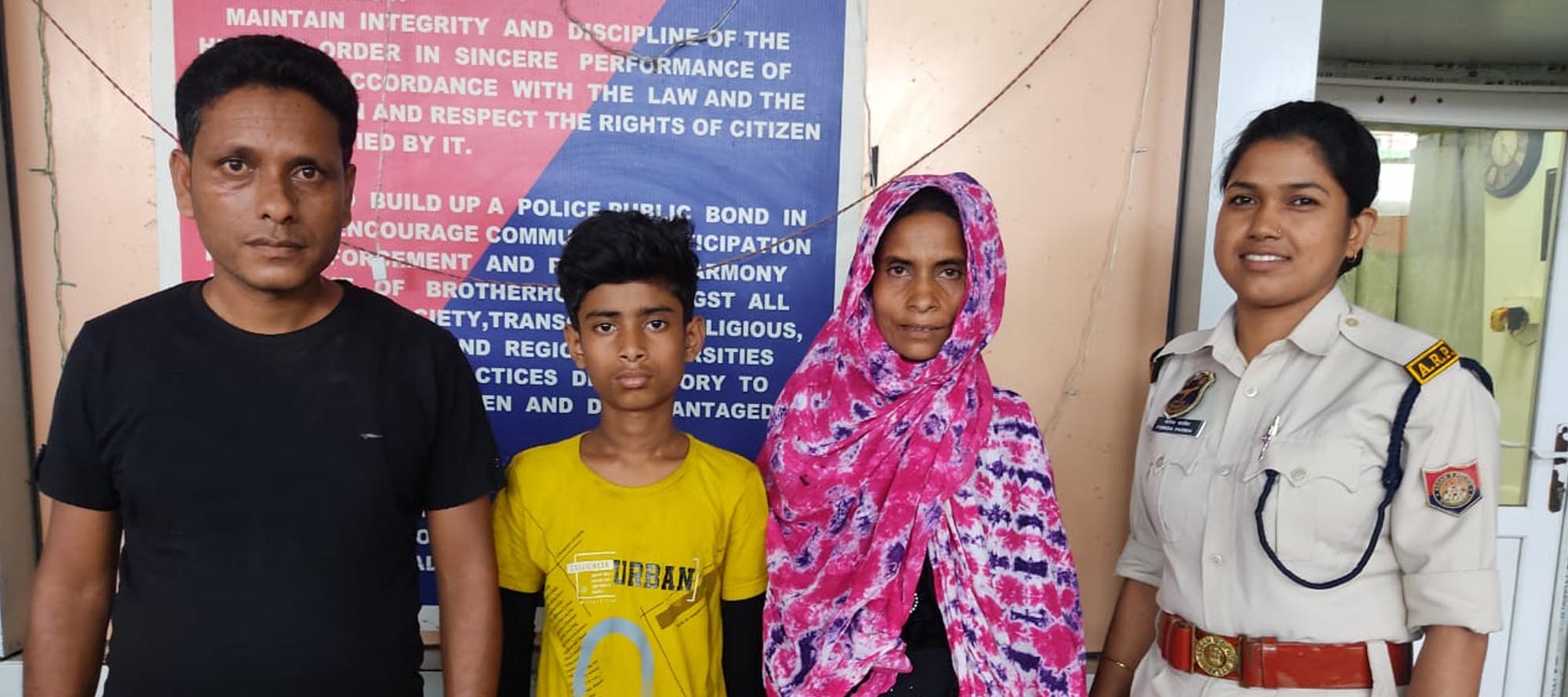
Educational Rehabilitation
This program is implemented in CDI, Guwahati and Tinsukia. It aims to restore or enable access to education for young, dropout girls who have been deprived of regular schooling or education due to various hardships such as poverty, conflict, displacement, trafficking, child labor, abuse, or other vulnerabilities.The initiative focuses on re-enrolling these girls for the continuation of their studies by registering them for HSLC and HSSLC through National Institute of Open Schooling (NIOS) and providing structured academic support to help them catch up with their studies. In addition to educational assistance, the program offers psychosocial support and counseling to address trauma and build self-confidence. The overarching goal is to reintegrate these girls into mainstream education and equip them with the knowledge and skills necessary for a brighter and more empowered future.
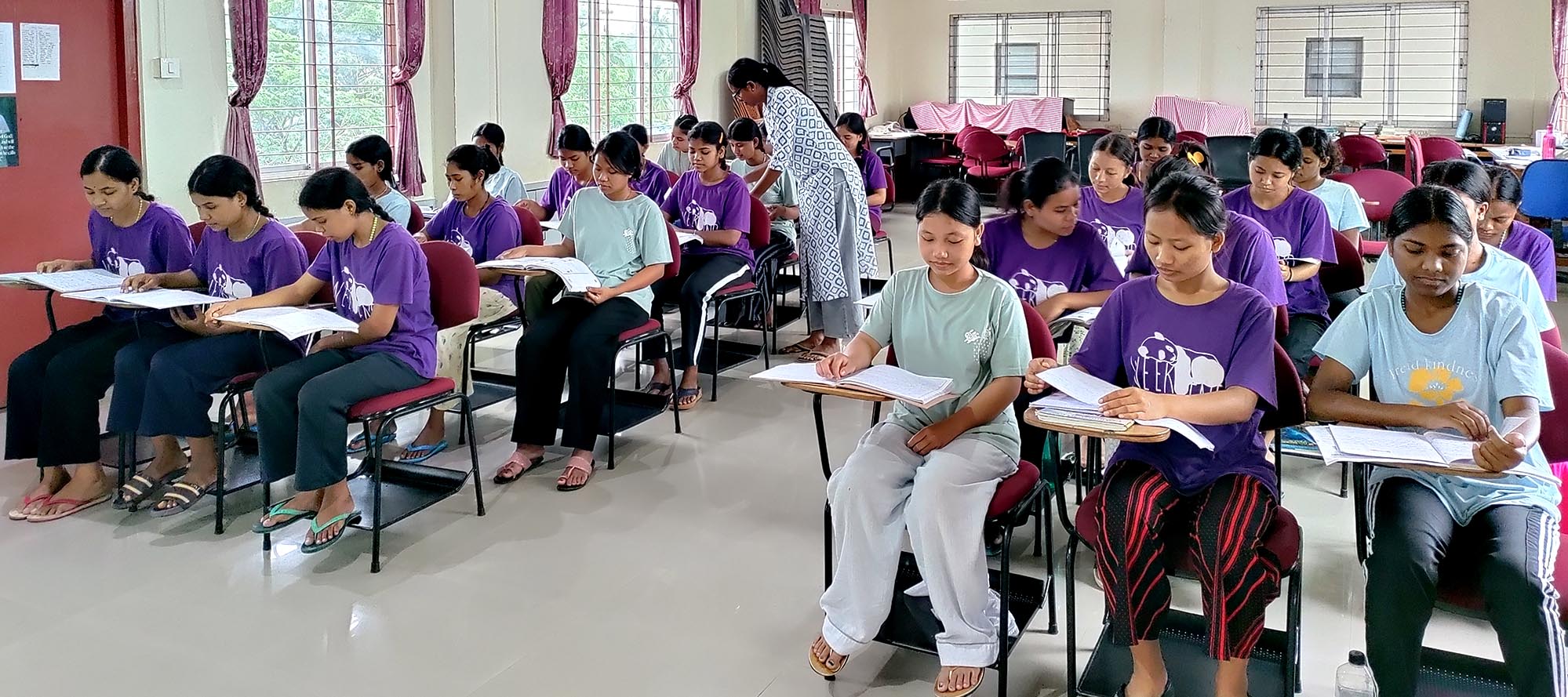
Vocational Skill Training
This program is implemented in CDI, Guwahati.Our vocational skill training equips young, vulnerable girls with practical skills that create pathways to employment and sustainable livelihoods. Under the tailoring training they learn to operate sewing machines, take measurements, cut fabric, and stitch various garments such as shirts, pants, skirts, dresses, school uniforms, and even bags, enabling them to find work or start small businesses from home or local markets. In addition, they also get training in basket making, candle making, and cell phone accessory production which offer alternative income-generating options. Besides housekeeping, training are also given to provide essential skills in cleaning, laundry, room organization, waste management, hygiene, time management, and safety protocols, preparing them for jobs in sectors like hospitality and domestic services. Altogether, these programs aim to foster economic independence and improve the overall quality of life for these young girls.
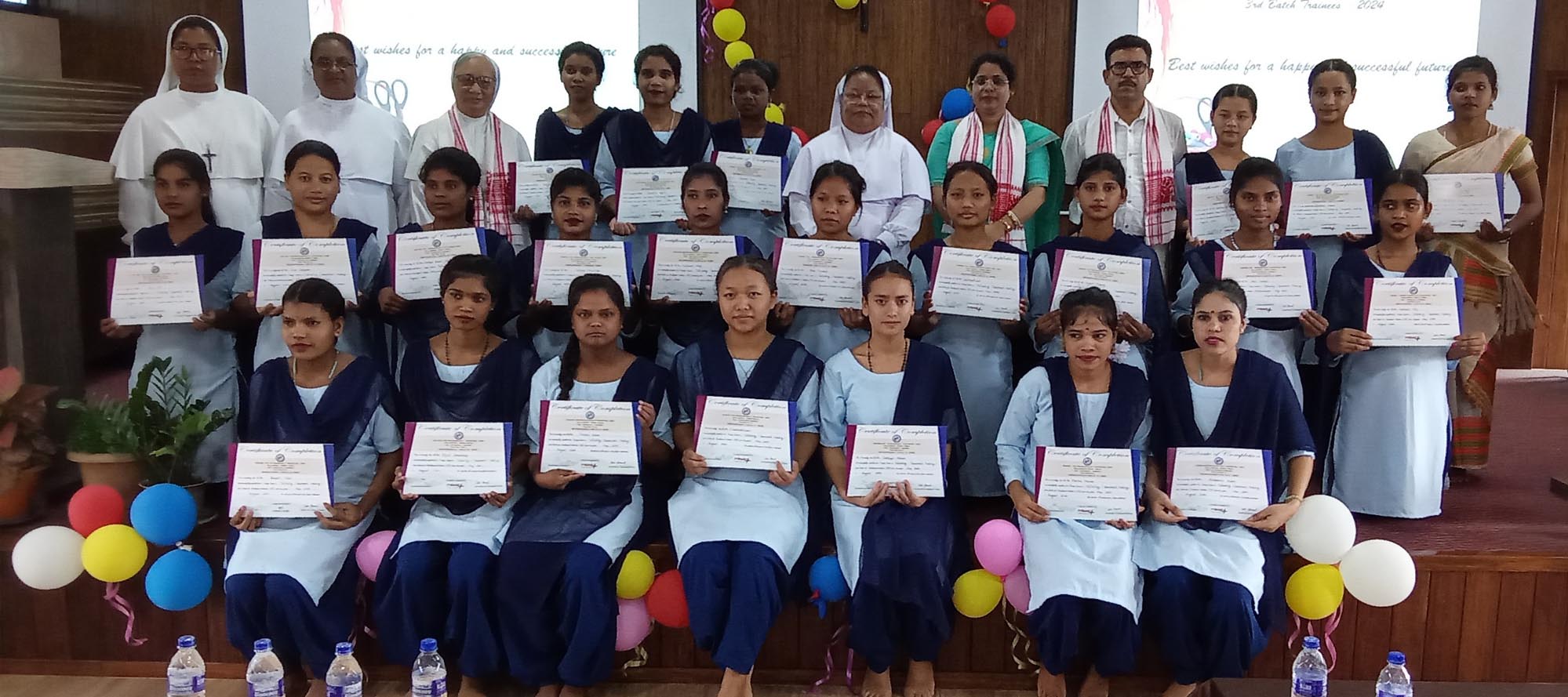
Training and Apprenticeship
Implemented at Centers in Guwahati and Imphal, this program provides young girls with vocational training and apprenticeship opportunities to enhance their employability and economic independence. The training covers technical skills in areas such as tailoring, basket making and housekeeping, and is followed by hands-on work experience at the Centre itself. During the apprenticeship phase, trainees are placed in real work environments such as tailoring units where they gain practical experience under the guidance of skilled professionals. This integrated approach not only builds technical proficiency but also fosters workplace discipline, confidence, and essential soft skills like communication and teamwork. The program ultimately aims to empower young girls by preparing them for sustainable livelihoods through employment or self-employment.

Shelter - Champhai
This program is implemented in Champhai. The aim of this program is to improve the future prospects of poor children, with a particular focus on young girls, by addressing their critical need for shelter, education, and emotional support. Many of these children have been displaced by ethnic violence and civil conflict often losing their homes, families, and sense of security. This shelter program not only offer physical safety but also serves as an environment where children can heal and grow, ensuring they receive the protection, support, and resources needed to begin reconstructing their lives in a stable and nurturing environment.
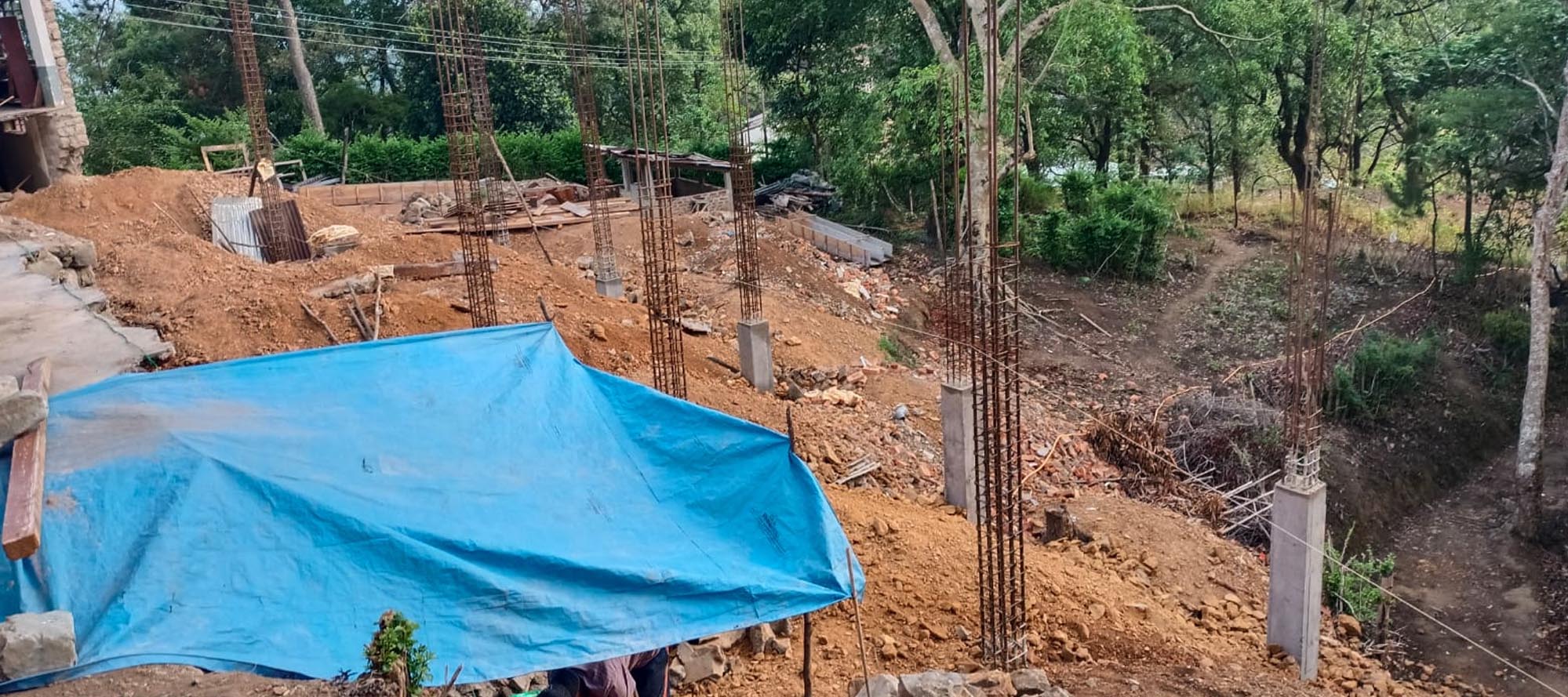
Educational Support to Vulnerable Children
This program is implemented in Moreh and Champhai. The aim is to enhance the future prospects of internally displaced children, particularly young girls, by providing quality education, safe accommodation, and boarding facilities. Many of these children, who are victims of ethnic violence and displacement due to civil war, had been out of school for a long time and faced significant gaps in their learning. They are given intensive academic coaching and tuition to help bridge the differences in educational standards. In addition to academic support, the program offers counseling to help the children cope with the trauma of losing their homes, families, and years of growth. Girls are specifically identified from settlements camps and forest areas, where vulnerabilities are heightened. Care and support needed are given to begin rebuilding their lives.
